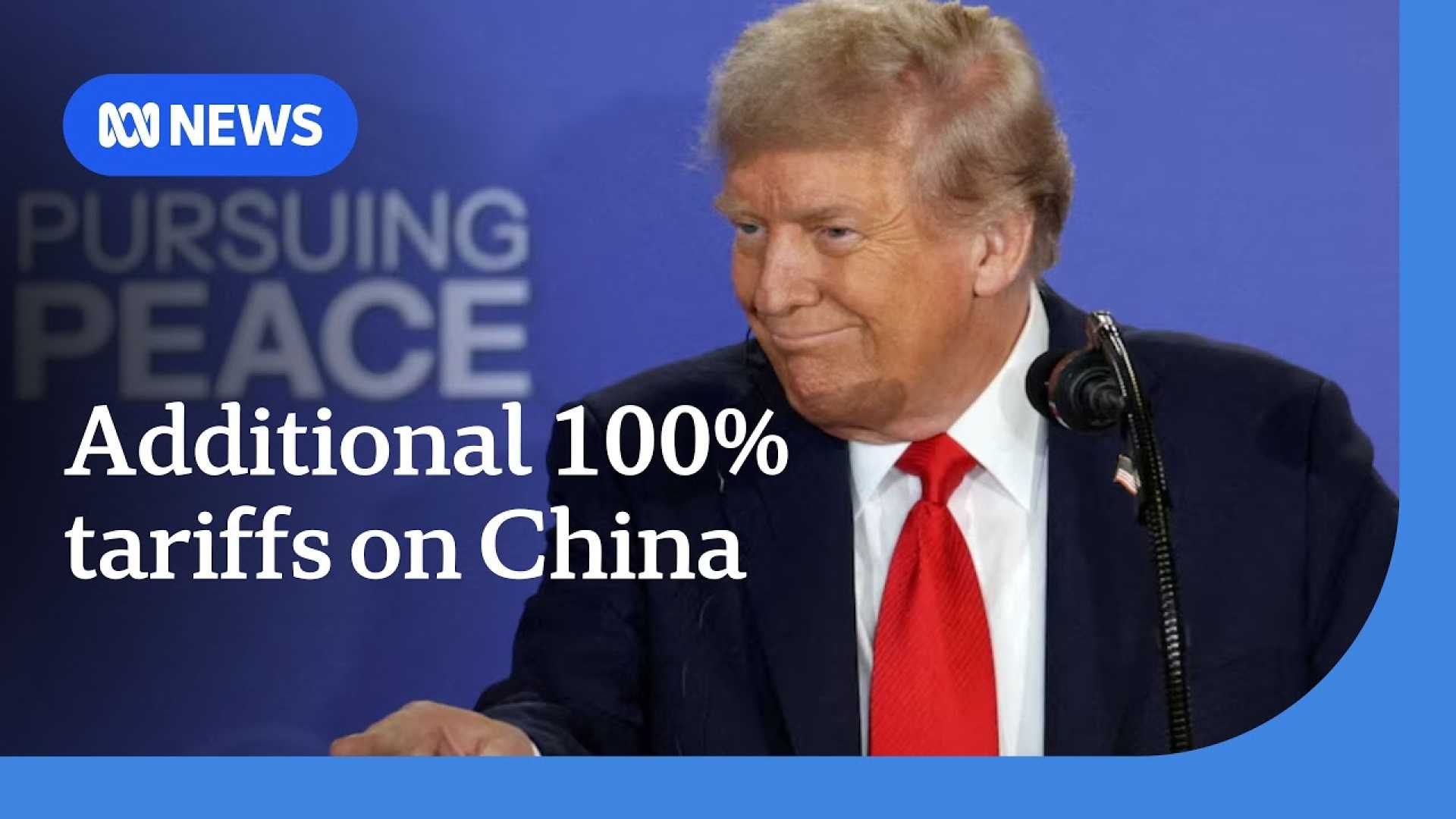Business
Trump Announces 100% Tariff on Chinese Goods Amid Rising Trade Tensions

NEW YORK, NY — President Donald Trump announced on October 10, 2025, that the United States will impose a 100% tariff on goods imported from China, effective November 1, in addition to the existing 30% tariffs. This decision escalates an ongoing trade conflict just as relations had shown signs of improvement.
In a post on his social media platform Truth Social, Trump characterized China’s recent export controls on rare earth minerals as “hostile” and a cause for his response. “The United States of America will impose a Tariff of 100% on China, over and above any Tariff that they are currently paying,” he wrote. He also indicated that the United States would introduce export controls on “any and all critical software.”
Global markets reacted negatively to Trump’s announcement, with the Dow Jones Industrial Average falling by 879 points, or 1.9%. The S&P 500 and Nasdaq also experienced declines of 2.71% and 3.56%, respectively. Investors expressed concern over the potential for renewed trade hostilities, reminiscent of earlier this year when tariffs soared dramatically.
The fallout from Trump’s announcement has implications for both nations, which are the world’s two largest economies. While Mexico has recently overtaken China as a primary source of goods for the United States, America relies on Chinese imports for hundreds of billions in goods, particularly in electronics and technology sectors.
Despite Trump’s push for U.S. companies to relocate production domestically, many firms have continued extensive manufacturing overseas, citing cost concerns. The president’s tariff threats and past measures have put significant pressure on U.S. consumers and businesses that rely on imported products.
Trade negotiations had previously helped to reduce tariffs from a peak of 145% down to 30% for the U.S. and 10% for China, but the latest developments threaten to undo this progress. The meeting between Trump and Chinese President Xi Jinping, scheduled for later this month, has also been canceled in light of these tensions.
Experts warn that these newly imposed tariffs could lead to higher prices for consumers and could disrupt supply chains, particularly in technology and automotive sectors that depend on rare earth minerals. Craig Singleton, a senior director at the Foundation for Defense of Democracies, stated that this action marks the potential end of the tariff truce, igniting fears of economic turmoil on both sides.
The situation remains fluid as both economies navigate longstanding challenges over trade and mutual dependencies, with the world watching closely how these developments unfold.












